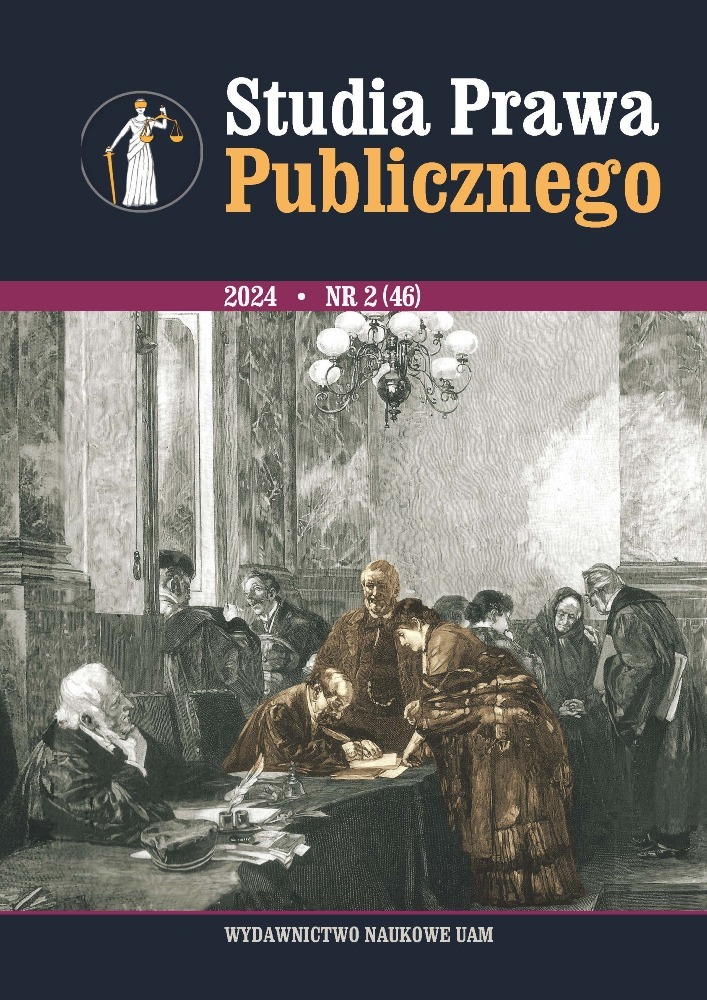Postulat posiłkowego stosowania zasad prawa karnego a odpowiedzialność z tytułu administracyjnych kar pieniężnych
The postulate of subsidiary application of criminal law principles and liability for administrative fines
Author(s): Małgorzata BiszczanikSubject(s): Law, Constitution, Jurisprudence, Administrative Law
Published by: Uniwersytet Adama Mickiewicza
Keywords: subjective circumstances; administrative liability; administrative fines; criminal law; administrative law
Summary/Abstract: The article focuses on the problem of liability for administrative fines, taking into account elements of a subjectivising nature of administrative liability to demonstrate the possibility of subsidiary application of criminal law provisions by public administration bodies. Through the analysis of the case law of the Supreme Administrative Court, selected Regional Administrative Courts, the Constitutional Tribunal, as well as the European Court of Human Rights, it is shown that the problem of measuring and imposing administrative fines on the basis of the provisions of substantive administrative law and Section IVa of the Code of Administrative Procedure requires a much broader analysis than any conducted thus far. Due to the legislator’s failure to guarantee the correct scope of legal protection that would include demonstrating the circumstances that are also of a subjective nature, obliged entities have been deprived of numerous legal guarantees provided not only in Article 42(2) of the Constitution of the Republic of Poland but also in Article 6 of the Convention for the Protection of Human Rights and Fundamental Freedoms (ECHR). The analysis of the nature of administrative fines proves that the current regulations of Section IVa of the Code of Administrative Procedure require significant reform, in particular, to guarantee the absence of arbitrary imposition and execution of administrative sanctionsby public administration bodies. Verifying the judgments from the point of view of taking into account the subsidiary application of the provisions of criminal law has made it possible to present a discussion on the nature of administrative liability, which is first and foremost of significance in terms of implementing the obligations of the State Party to the ECHR within the framework of taking into account subjective circumstances, but also in terms of the application of the ne bis in idem principle in the situation of concurrence of criminal and administrative liability. With this in mind, a de lege ferenda postulate is to amend the provisions of Section IVa of the Code of Administrative Procedure by including in its scope additional legal guarantees of obliged entities while taking into account the principle of legalism in its broadest sense.
Journal: Studia Prawa Publicznego
- Issue Year: 46/2024
- Issue No: 2
- Page Range: 95-126
- Page Count: 32
- Language: Polish

